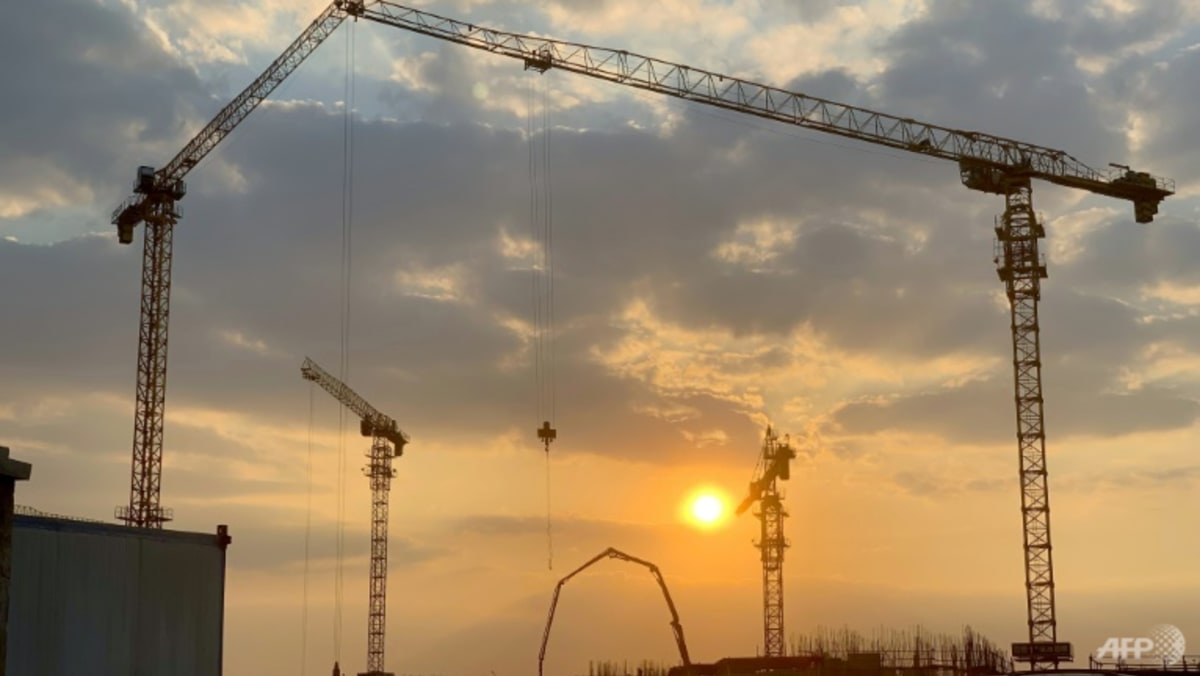
Yang succeeded him as chairman in June 2021 - just weeks before the company defaulted on a debt payment.
“After our default, we had around 100 housing projects that were stalled in over 70 cities,” said Yang, who seems years older than his true age and maintains his composure even when describing a crisis.
“It was a deadlock, stakeholders want to cut their losses.”
WIDESPREAD TURMOIL
Languang’s shares have fallen by more than half since its default.
And across the sector, the turmoil has been far-reaching: A Bloomberg gauge tracking Chinese developers’ stocks has fallen more than 40 per cent over the past two years while an index of high-yield dollar bonds dominated by builders had its second-worst year on record in 2022.
Years of high leverage and high growth taught entrepreneurs like Yang’s father to bet big. His story - of a family rising from modest origins to substantial wealth on the back of the property boom - is common to many of his generation. But that route to prosperity seems to be closed.
Now the Chinese government has lowered the systemic risk presented by the likes of Evergrande, it is stepping up efforts to calm the property sector’s turmoil.
In November, it rolled out a 16-point plan to ease liquidity issues in the sector and last month hinted there would be more support to come.
Traders piled back into the sector, causing the stock gauge to surge more than 50 per cent over the past two months.
The government’s priorities are ensuring that unfinished homes are completed, after a spate of protests last year, and supporting high-quality developers.
But more embattled businesses will need to lift themselves up even as China’s economic growth slows and consumer sentiment remains weak in the wake of zero-COVID.
“We are still struggling to survive but there is light at the end of the tunnel,” Yang said. “For the sector, I think a policy trough has come. The future will be about working with relevant authorities to seek some rescue.”
WAY FORWARD
Yang describes feeling overwhelmed by his company’s challenges.
Of the thousands of staff to leave Languang, many have abandoned the property industry altogether. Some have opened restaurants or become ride-sharing drivers, while others are retraining or remain unemployed.
The departures included several senior managers, some of whom have succumbed to depression.
To control costs, little things now matter. Documents are printed on both sides, offices are only air-conditioned part of the time and lavish banquets with creditors - a common feature of doing business in China - have become a rarity.
Still, Yang says the company has restarted more than 90 per cent of its stalled housing projects with the help of local government mediation.
City officials brought various stakeholders to the table to negotiate how to complete the work. For instance, builders must finish one floor of a given building before they get paid; they only start work on the next floor once payment has been received.
The developer has about 400 active projects in total.
Bagikan Berita Ini














0 Response to "China developer forced to sack 90% of workers in bid to survive - CNA"
Post a Comment